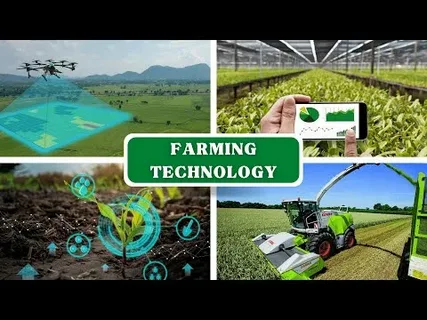In recent years, the agricultural landscape has undergone a significant transformation, largely due to advancements in technology. One of the most promising innovations is precision agriculture, a method that leverages data, sensors, and automation to optimize farming practices. This approach has profound implications for global food security and sustainability. This article explores The Global Impact of Precision Agriculture: Feeding the World Efficiently by examining its benefits, challenges, and future potential.
Understanding Precision Agriculture
Precision agriculture refers to the use of advanced technologies such as GPS, drones, satellite imagery, and IoT sensors to monitor and manage crops at a highly detailed level. Unlike traditional farming methods, precision agriculture allows farmers to tailor their actions to specific areas within a field, optimizing inputs like water, fertilizers, and pesticides. This targeted approach minimizes waste and maximizes crop yield.
Enhancing Food Production Efficiency
One of the core reasons why The Global Impact of Precision Agriculture: Feeding the World Efficiently is so significant lies in its ability to increase agricultural productivity. With the global population expected to reach nearly 10 billion by 2050, food demand is soaring. Precision agriculture helps meet this demand by enabling farmers to produce more food on less land with fewer resources. Through precise monitoring and data analysis, farmers can identify problems early, reduce crop losses, and improve harvest quality.
Environmental and Economic Benefits
Beyond just boosting yields, precision agriculture also has a substantial environmental impact. By applying fertilizers and pesticides only where necessary, it reduces chemical runoff and soil degradation. This sustainable approach not only protects ecosystems but also helps combat climate change by reducing greenhouse gas emissions from farming activities.
Economically, farmers benefit from cost savings and improved profitability. Efficient resource use lowers input costs and increases crop returns. The adoption of precision agriculture technologies is transforming farming into a more data-driven, sustainable, and profitable industry worldwide.
Overcoming Challenges for Global Adoption
Despite its promise, several challenges hinder the widespread adoption of precision agriculture, especially in developing countries. High initial costs, lack of technical expertise, and infrastructure limitations pose significant barriers. To fully realize The Global Impact of Precision Agriculture: Feeding the World Efficiently, investments in education, technology transfer, and supportive policies are essential.
The Future of Precision Agriculture
Looking ahead, innovations such as artificial intelligence, machine learning, and robotics will further enhance the capabilities of precision agriculture. These advancements will make farming more autonomous, resilient, and adaptive to climate change. As more stakeholders—from governments to private sectors—embrace these technologies, the vision of feeding the world efficiently through precision agriculture will become increasingly attainable.
In conclusion, The Global Impact of Precision Agriculture: Feeding the World Efficiently is reshaping the future of food production by making farming smarter, more sustainable, and capable of supporting a growing global population. Embracing this technology is crucial to securing a stable food supply for generations to come.

